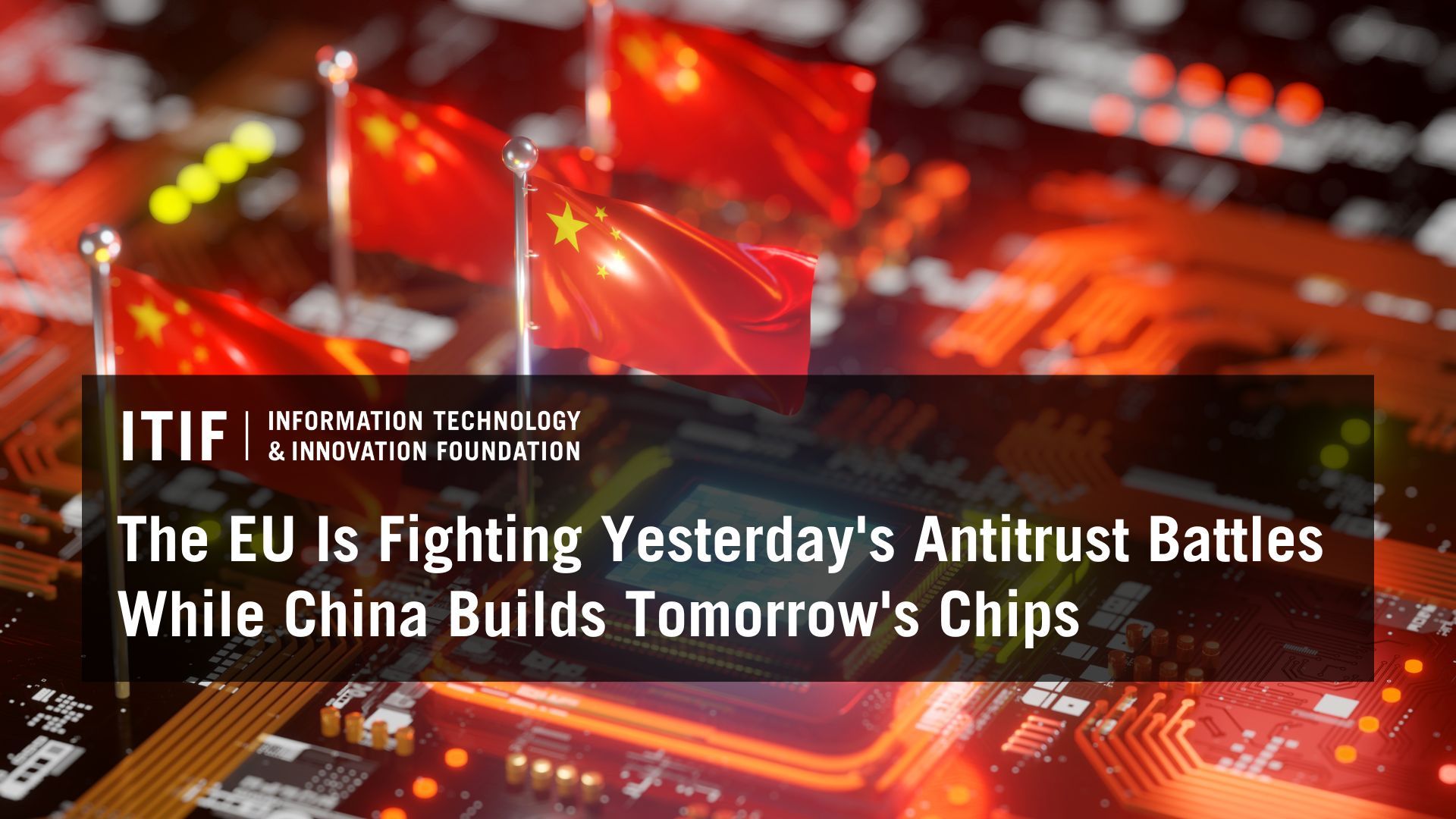The European Commission is pursuing a €376 million fine against Intel for anticompetitive practices from two decades ago, when the company paid manufacturers to delay products with AMD chips. This enforcement action reveals a fundamental disconnect: while Brussels relitigates decades-old violations against an allied-based company struggling for its very existence, China is investing hundreds of billions to dominate tomorrow’s semiconductor industry.
Intel today bears no resemblance to the dominant firm that committed these purported violations and went from dominance to struggling for survival in the time it took this case to wind through the courts. When these violations occurred, Intel dominated the PC market with over 80 percent share. Today, it has largely surrendered the smartphone chip market to Qualcomm and is struggling to leverage AI opportunities. Nvidia is now worth $3 trillion, while Intel’s market cap has fallen to $110 billion. Even in its core CPU business, AMD continues to gain ground, all the while the world has shifted to the dominance of the fabless business led by TSMC.
The numbers don’t lie. Intel now outsources 30 percent of its chip production to Taiwan’s TSMC, a stark admission of its manufacturing struggles. The company’s stock plummeted 60 percent in 2024, its worst year on record, forcing its CEO to resign and leading to its removal from the Dow Jones Industrial Average. Intel is now cutting 25,000 jobs and implementing $10 billion in cost reductions to stabilize its finances.
Yet Intel isn’t finished. The company remains the largest x86 processor maker, retains significant R&D capabilities, and its forthcoming 18A process technology could restore some competitive edge. Intel also plays a critical role in the U.S. and European semiconductor supply chain resilience, something that would vanish if the company fails.
Deterrence matters in competition enforcement, but cases this old do little to shape future corporate conduct, especially in a sector where market leadership can change in less than a decade. At some point, precedent-setting becomes academic while industrial stakes remain real. In this specific case, pursuing a fine for 20-year-old conduct against a potentially fatally weakened company achieves little other than inflicting more harm.
These harms include lessened EU competitiveness. Europe’s semiconductor strategy relies on private partners capable of making multibillion-euro investments. Intel recently canceled its planned €30 billion factory in Germany and a €4.6 billion facility in Poland, citing financial pressures and market conditions. The German government had allocated €10 billion in subsidies for the Magdeburg plant—funding which now sits idle. The €376 million fine adds financial pressure at the wrong moment, when Intel is already struggling to fund European investments.
Doubling down on a large Intel fine also ignores that the EU and the United States are in an industrial competition where China explicitly uses economic policy as a strategic weapon. While the EU is chasing after this old fine, China is pouring massive subsidies into semiconductor manufacturing, backed by forced technology transfer and industrial espionage. Beijing views semiconductors not just as commercial products but as tools of geopolitical power.
A competition policy premised upon uncontested Western technological leadership is inadequate for today’s reality. Enforcement actions that weaken Western industrial capacity while China builds its capabilities directly advance Beijing’s strategic objectives. The Commission needs to recognize this new context rather than mechanically pursuing a case from a bygone era. Antitrust enforcement that damages Western champions only serves Chinese competitors, not consumers.
The Commission faces a straightforward choice. It can continue pursuing violations from 2002, when Intel dominated desktop computing and smartphones didn’t exist. Or it can recognize that semiconductor competitiveness against China matters more than relitigating ancient history. A nominal fine would acknowledge the violations while avoiding damage to Western technological sovereignty.
Europe can’t afford to weaken allied chipmakers while Beijing builds and takes tomorrow’s capacity. The question isn’t whether Intel violated competition law twenty years ago. The question is whether the West will have competitive semiconductor manufacturing tomorrow.
